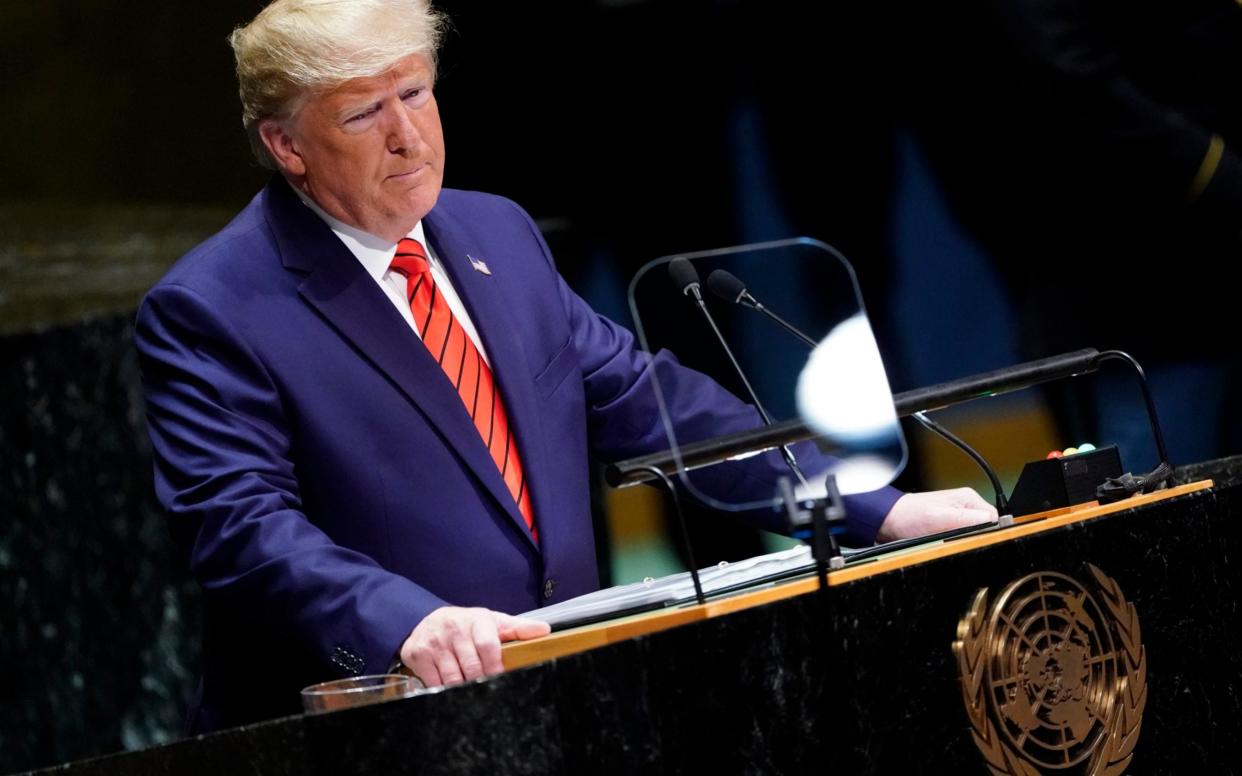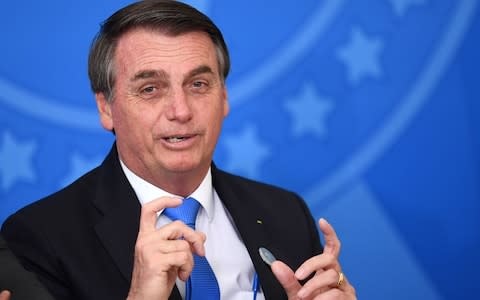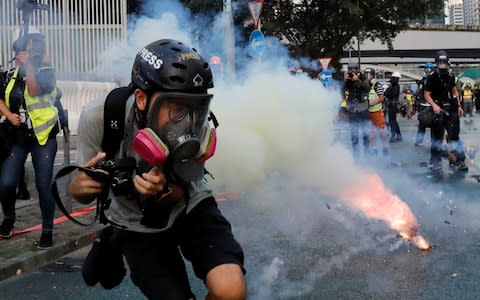UN General Assembly 2019: Donald Trump issues stark warning to 'globalists'

President Donald Trump has warned that “the future does not belong to globalists” as he told world leaders gathered at the United Nations to embrace patriotism and put their own interests first.
In an address overshadowed by domestic concerns, including mounting calls for impeachment after he urged Ukraine’s president to investigate his rival Joe Biden, a sombre Mr Trump delivered a wide-ranging, downbeat address.
"If you want peace, love your nation,” he said. “Wise leaders always put the good of their own people and their own country first.
"The future does not belong to globalists. The future belongs to patriots.
"It is why we in the United States have embarked on an exciting programme of national renewal."
Mr Trump urged the world to unite against Iran's "blood lust”, noting: “It is time for Iran’s leaders to finally put the Iranian people first.”
He said that the US has “no permanent enemies,” but he warned that Tehran needed to abandon its current policies to be rewarded.
“As long as Iran’s menacing behaviour continues, sanctions will not be lifted. They will be tightened,” he said.
Hassan Rouhani, the Iranian president, met with Angela Merkel, the German chancellor, and French president Emmanuel Macron while at the UN. He also spoke to the British prime minister, shortly before Mr Johnson addressed the UN.
Mr Rouhani said he was open to discuss small changes, additions or amendments to a 2015 nuclear deal between Iran and six major powers if the United States lifted sanctions imposed on the Islamic republic.
Mr Trump has said he has no intention of lifting sanctions unless Iran makes changes first.
Mr Trump's third address to the global gathering had been hotly anticipated - his first year, in 2017, saw him stun the delegates with a broadside against multilateralism, while last year he was laughed at to his face when he claimed to have accomplished more than any other US president before him.
He was preceded by Jair Bolsonaro, Brazil’s newly-elected far-Right leader, who delivered a fiery response to those who criticised his environmental policies. Mr Bolsonaro, like Mr Trump, is a climate change sceptic who is pushing to allow logging and mining in protected reserves.

He said those who saw the Amazon fires this summer as a global problem were “colonialists”, insulting Brazil’s sovereignty. He accused them of wanting to keep Brazil’s indigenous people like “cavemen”, rather than allowing them to develop their own lands.
"It is a fallacy to say that the Amazon is the heritage of humankind,” he said.
Mr Bolsonaro said it was “a misconception” to say that “our Amazon forests are the lungs of the world.”
Mr Trump’s speech, by contrast, was more predictable. Indeed Wilbur Ross, his 81-year-old commerce secretary, snoozed gently in his seat.
Mr Trump addressed migration, urging migrants not to cross over into the US illegally, and called for nations to respect religious freedom – emphasising the right of countries to restrict abortion access on religious grounds.
Mr Trump called on China to respect the Hong Kong protesters, and once again defended his trade war.

He accused China of currency manipulation and dumping, and called for reform of the World Trade Organisation. He said China should not be able to “game the system at others’ expense” through the WTO.
“As far as America is concerned, those days are over,” he said.
He urged North Korea to denuclearise, and hit out against Nicolas Maduro, the Venezuelan leader – while the Venezuelan delegate pointedly read a book about national hero Simon Bolivar. In a striking admission he did not mention Juan Guaido, the US-backed interim president, by name.
Also notable was his failure to mention the Israel-Palestine agreement he has been promising for the past three years, and his skipping of references to Syria or Yemen.
Mr Macron, the French president, delivered - as in previous years - a rebuttal to Mr Trump’s rhetoric.
“I don’t believe the crises we are facing can be defeated by turning inwards,” he said.
“I truly believe in patriotism,” he added, but said it was a patriotism that didn’t equal isolationism.
“One that believes in sovereignty, and the need to cooperate. Today we need to reinvent multilateralism. A modern multilateralism based on cooperation, that strives to create results - and we have demonstrated the effectiveness of this.”

